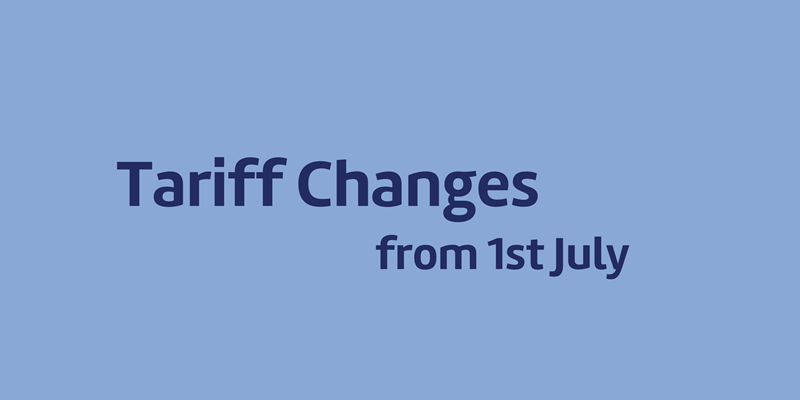Powering Life in Off-Peak
Use, run and charge electrical appliances between 11pm and 5am to use imported 100% lower-carbon energy.
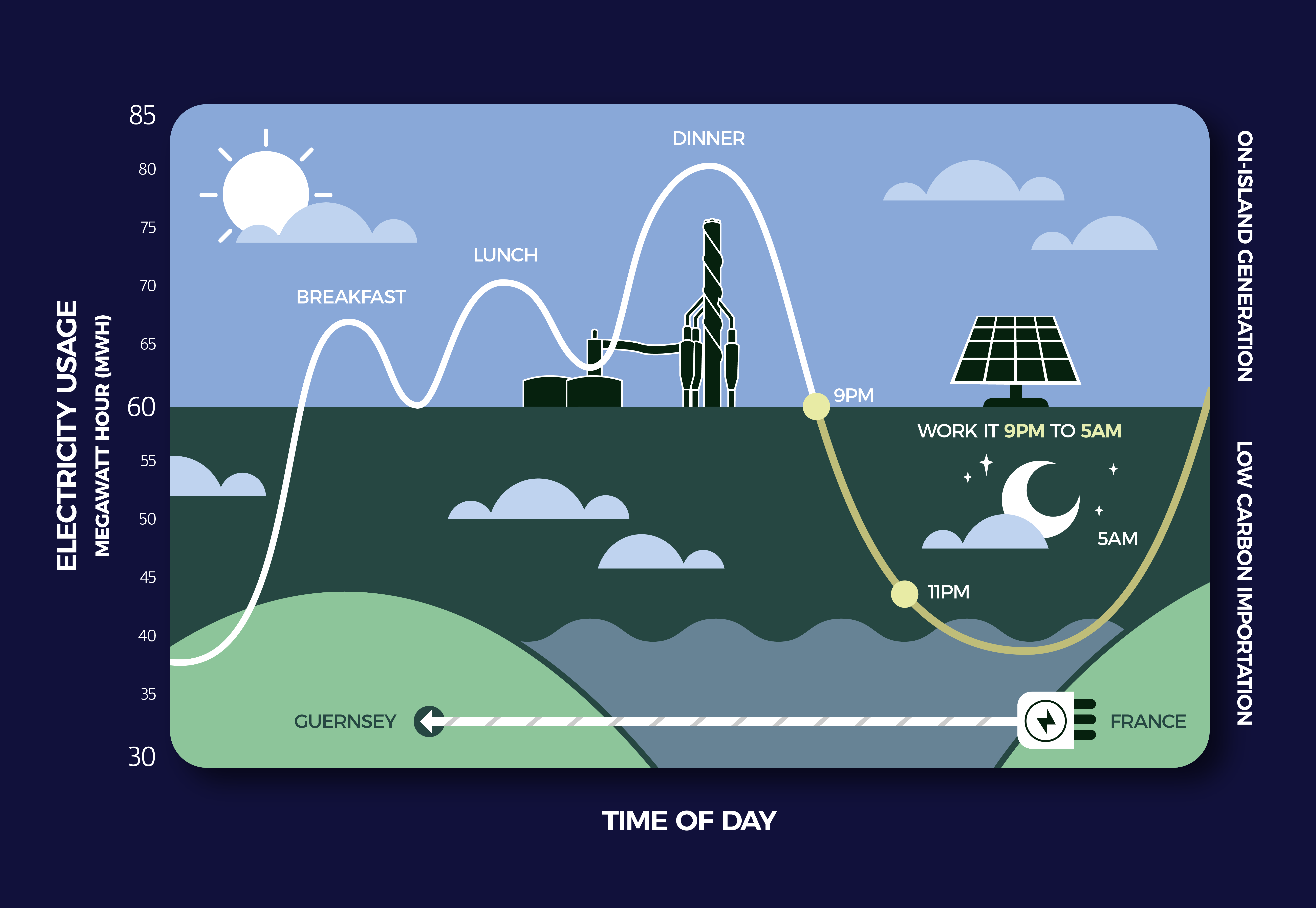
What is 'Peak Demand'?
Peak demand is the time when consumer demand for electricity is at its highest. This is usually around breakfast, lunch and dinner, and is simply because more people are indoors and using electrical equipment to power their lives.
In Guernsey, we import around 60MW of low-carbon energy from the European grid. But when customers demand more than 60MW of electricity, this must be topped up using diesel generators at the Vale power station.
Using electricity during these peak times can cause higher greenhouse gas emissions - especially during the colder, darker months - plus increased wear and tear on equipment. Less pressure on the power station ultimately means less emissions and less costly maintenance and repair.
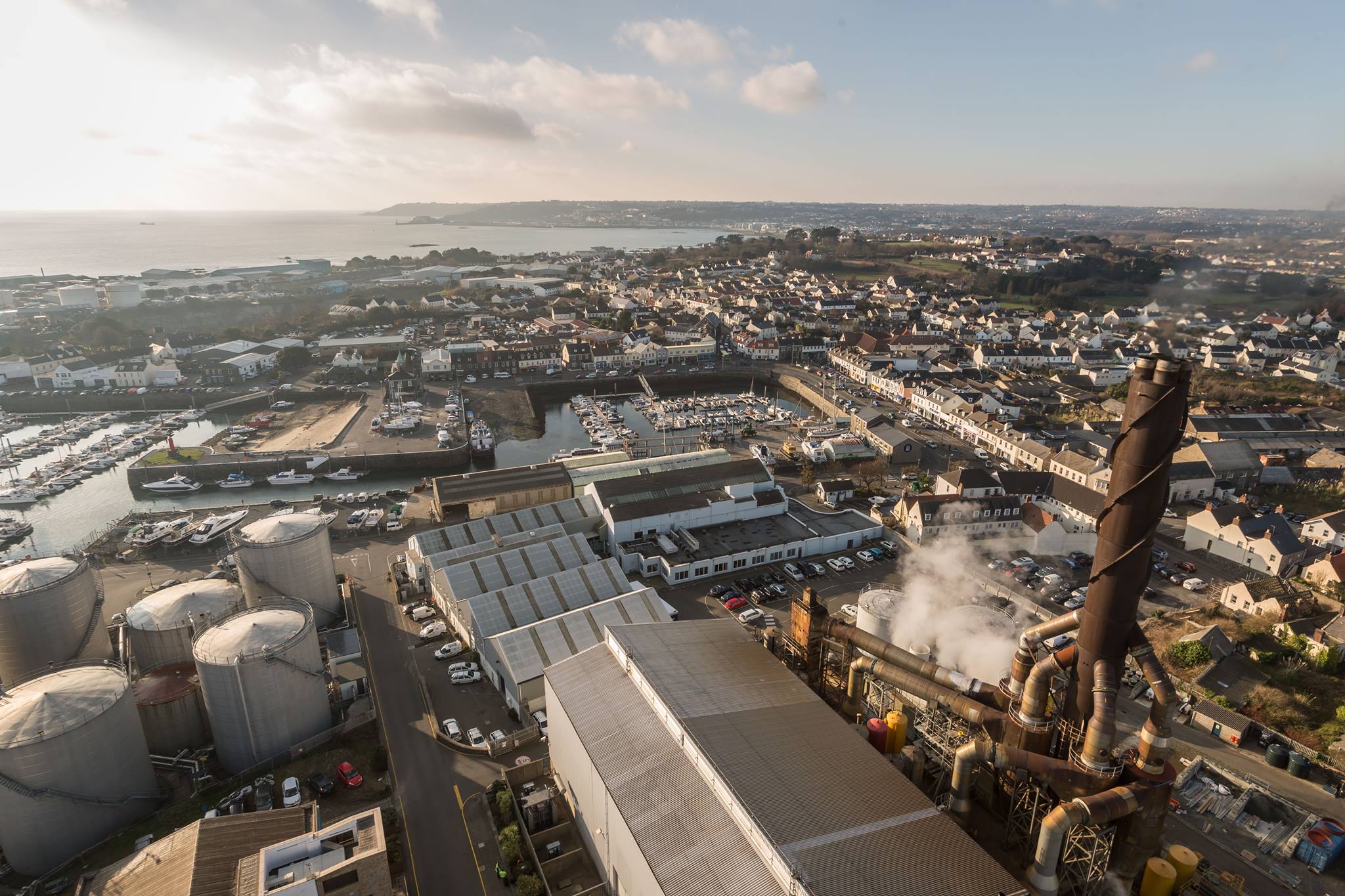
Want some help reducing your reliance on fossil-fuels? Find out more about our services designed to help islanders get energy smart.
Here's an example
In January 2024, the highest demand in Guernsey was reached at 94.2MW in response to the cold winter weather that week.
As mentioned in the news, Jon Sexton, Head of Engineering and Design at Guernsey Electricity, said: “The maximum energy we can import through the subsea cable is 60MW, which means that generators at the Vale Power Station were required to meet the additional demand."
This means we needed to use fossil-fuels at the power station to meet the additional demand, and for ease of reference the 60MW importation capacity has been marked up below.
It's only natural to use more electricity during colder, darker months - and even more important to be mindful of the electricity we're using and move what we can to the cleaner off-peak periods between 11pm and 5am.
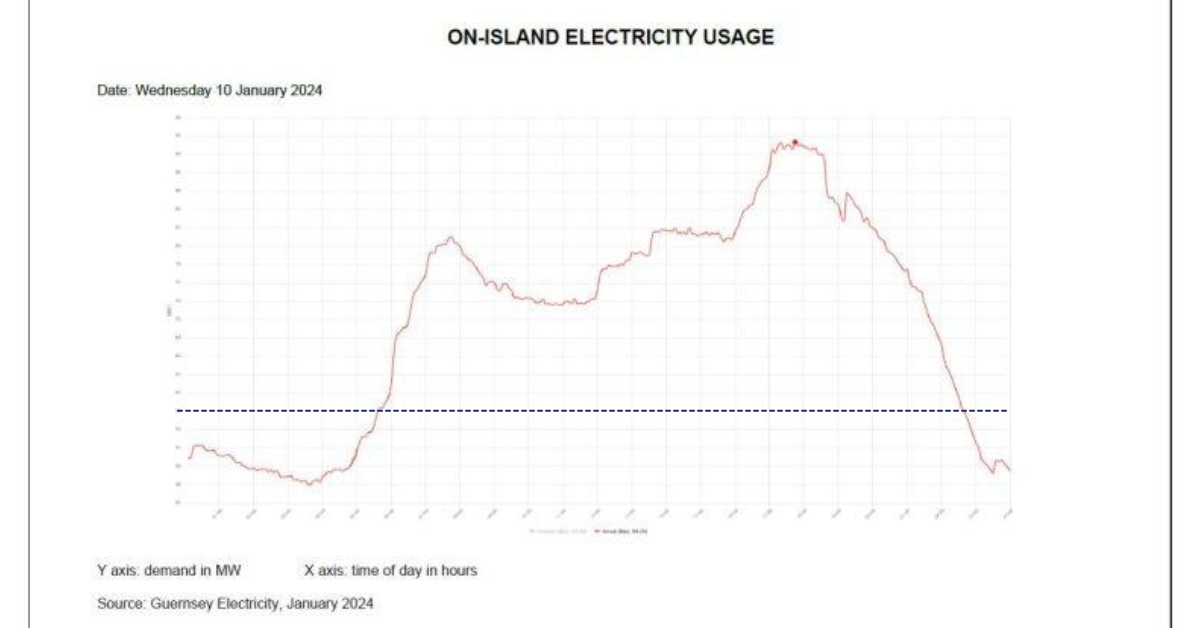
How can I use low-carbon electricity?
Where possible, move as much electricity usage as you can to between 11pm and 5am.
The best appliances to use 'off peak' are those with in-built time delays, such as:
- Washing machines
- Tumble dryers
- Dishwashers
- Hot water cylinders
- Electric vehicle charging points
- Slow cookers
Don’t have built-in timers?
Hold off on using these appliances during the busy 'peak' times, like dinnertimes, until later. Any time from 9pm works well, provided this is on or before your Super Economy 12 low-rate time band.
You can find your specific time bands on the back of your electricity bill

Here’s an example:
A quick 1-hour cycle of a washing machine at 6 or 7pm, especially during winter, means the power station has to help supply the electricity. This power is generated using fossil-fuels.
In other words, you’re using fossil-fuels to clean your clothes at peak times.
But if you set a time delay to start between 11pm and 5am, you can get your clothes clean using low-carbon energy, as electricity demand is so low during this overnight period. Cleaner energy for cleaner clothes.
Plus, using a longer 'EcoMode' should help save you money too as it actually uses less electricity and less water, especially if you’re on the Super Economy 12 tariff which offers low-rate electricity over 50% cheaper than earlier in the day. Over time, it all adds up!
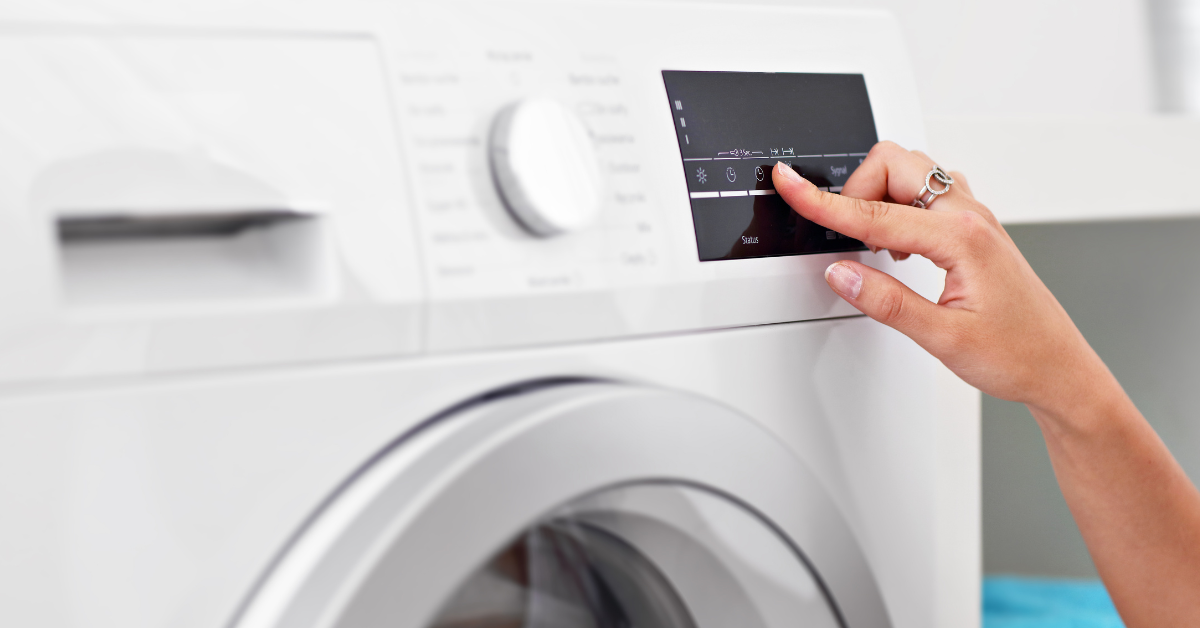
How can I spend less money?
Bad habits cost you money, and when it comes to electricity there are so many ways people can reduce their bills. Why pay for electricity you aren't using?
First, a few things to check.
- Are you on the Super Economy 12 Tariff? If not, sign up today
- What are your low-rate times? If you're not sure, check the back of your electricity statement
- Do you appliances have time delays? If not, try using a smart plug for all plug-in appliances
Once you're all set with your low-rate times, simply use your electrical appliances as much as possible as it's over 50% cheaper to use. It's a win-win for your wallet and the planet.
Discover more about DIY savings on your electricity bill in our energy saving hub.
Or if you'd prefer someone to visit your home and help save energy for you, why not book in a home visit with one of our Energy Savers.
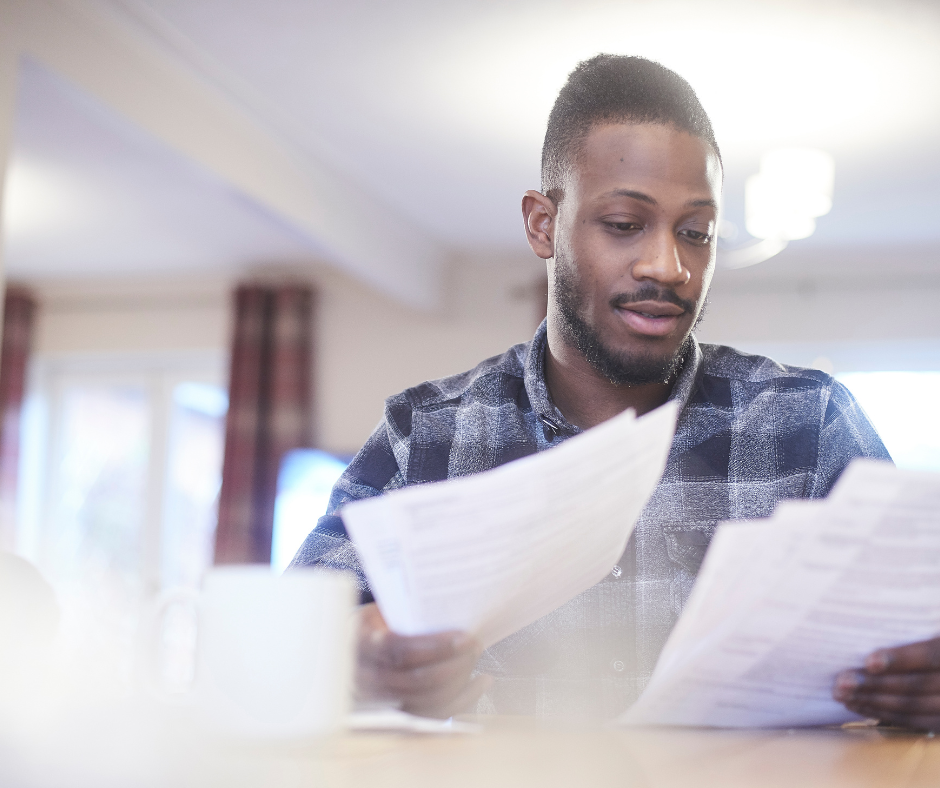
Want to stay in the know about our island's electricity?
-
![]() 23 May 2025
23 May 2025Tariff Changes from 1st July 2025
Electricity tariffs are to rise on 01 July 2025 after the States Trading Supervisory Board (STSB) approved an 8% revenue increase. -
![]() 19 May 2025
19 May 2025What does my money pay for?
For most people, the biggest energy bill of the year follows the coldest, darkest months when we all lean on our energy supply the most. So what is really behind modern life? -
![]() 28 February 2025
28 February 2025Monthly Meets - Meet Christian
This month we're plugging into the world of communications at Guernsey Electricity. Meet Head of Communications and Engagement, Christian Lacey-Brennan.







